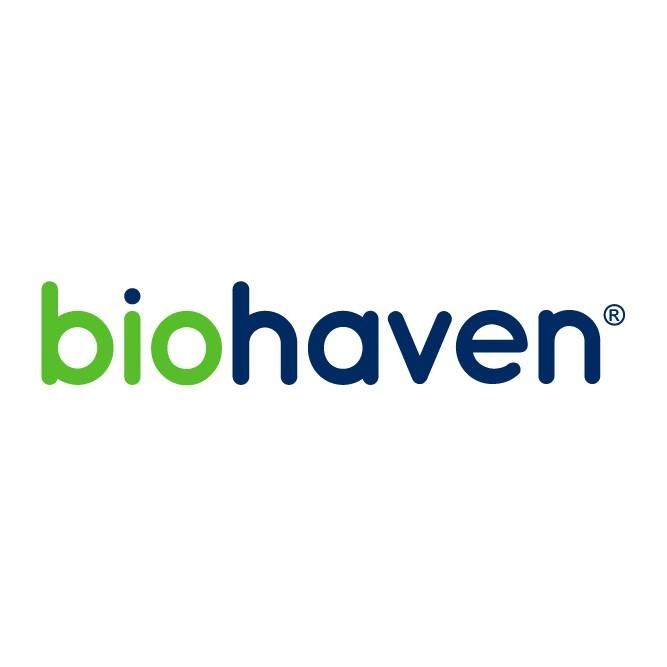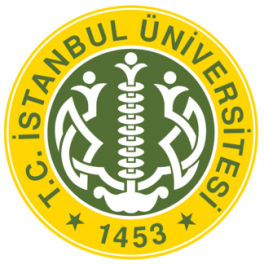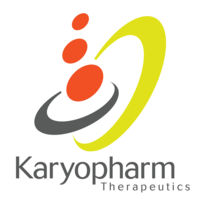预约演示
更新于:2026-02-20

Catalent, Inc.
更新于:2026-02-20
概览
标签
肿瘤
血液及淋巴系统疾病
免疫系统疾病
ADC
造血干细胞疗法
单克隆抗体
疾病领域得分
一眼洞穿机构专注的疾病领域
暂无数据
技术平台
公司药物应用最多的技术
暂无数据
靶点
公司最常开发的靶点
暂无数据
| 排名前五的药物类型 | 数量 |
|---|---|
| 小分子化药 | 8 |
| ADC | 8 |
| 单克隆抗体 | 2 |
| 造血干细胞疗法 | 2 |
| 化学药 | 1 |
关联
22
项与 Catalent, Inc. 相关的药物作用机制 CGRP receptor 拮抗剂 |
在研机构 |
原研机构 |
最高研发阶段批准上市 |
首次获批国家/地区 美国 |
首次获批日期2020-02-27 |
作用机制 CSF-1R拮抗剂 [+2] |
最高研发阶段批准上市 |
首次获批国家/地区 美国 |
首次获批日期2019-08-02 |
作用机制 ACADS inhibitors [+1] |
非在研适应症 |
最高研发阶段批准上市 |
首次获批国家/地区 美国 |
首次获批日期2019-07-03 |
52
项与 Catalent, Inc. 相关的临床试验CTR20243921
贝沙罗汀胶囊单药治疗既往接受至少一次全身治疗的复发或难治性皮肤T细胞淋巴瘤的开放、单臂、多中心临床试验
主要目的:在皮肤T细胞淋巴瘤(CTCL)中国人群中评价贝沙罗汀胶囊单药治疗既往接受至少一次全身治疗的复发或难治性皮肤T细胞淋巴瘤患者的有效性和安全性。
次要目的:在CTCL中国人群中进行贝沙罗汀胶囊300mg/m2/d的药代动力学研究。
开始日期2025-02-18 |
申办/合作机构 |
CTR20244124
一项在重度嗜酸性粒细胞性哮喘受试者中评估口服dexpramipexole治疗52周的有效性、安全性和耐受性的随机、双盲、安慰剂对照、平行组研究。
本研究的主要目的是证明dexpramipexole 在减少重度哮喘急性发作方面的有效性。
开始日期2025-01-24 |
申办/合作机构  精鼎医药研究开发(上海)有限公司 精鼎医药研究开发(上海)有限公司 [+3] |
CTR20244185
一项在中国健康成人女性受试者中评估拉索昔芬5 mg片剂安全性、耐受性和药代动力学特征的开放性、单次给药I 期临床研究
主要目的:评估在中国健康成人女性受试者中单次给予5 mg拉索昔芬片的药代动力学(PK)特征。
次要目的:评估在中国健康成人女性受试者中单次给予5 mg拉索昔芬片的安全性和耐受性。
开始日期2024-11-05 |
申办/合作机构  上海复宏汉霖生物技术股份有限公司 上海复宏汉霖生物技术股份有限公司 [+1] |
100 项与 Catalent, Inc. 相关的临床结果
登录后查看更多信息
0 项与 Catalent, Inc. 相关的专利(医药)
登录后查看更多信息
58
项与 Catalent, Inc. 相关的文献(医药)2025-12-02·MOLECULAR CANCER THERAPEUTICS
Preclinical Characterization of XB010: A Novel Antibody–Drug Conjugate for the Treatment of Solid Tumors that Targets Tumor-Associated Antigen 5T4
Article
作者: Cheng, Jackie ; Gogas, Kathleen R. ; Bauzon, Maxine ; Linz, Tom ; Barfield, Robyn M. ; Chuprakov, Stepan ; Solis, Willy A. ; Kantak, Seema ; Janson, Christine M. ; Matsuda, Yutaka ; Vainshtein, Inna ; Ogunkoya, Ayodele O. ; Hickle, Colin L. ; Yeo, Dominick Y. ; Hennessy, Marlene A. ; Drake, Penelope M. ; Park, Minjong ; Zhang, Fangjiu ; Higaki, Jeffrey N. ; Mendelsohn, Brian A.
Abstract:
The oncofetal antigen 5T4 is expressed in many solid tumors, making it an attractive antitumor target. XB010 is a novel, 5T4-targeted, antibody–drug conjugate developed using the SMARTag platform to optimize tolerability. We describe the development, design, and preclinical characterization of XB010. In vitro and in vivo efficacy of XB010 was assessed in cell-derived xenograft breast cancer cell lines (MCF-7 and MDA-MB-468) and in patient-derived xenograft tumor models (squamous cell carcinoma of the head and neck, non–small cell lung cancer, and breast cancer). Additionally, the in vivo combinatorial efficacy of XB010 + anti–PD-1 antibody was assessed in an MC38-h5T4 syngeneic colon cancer xenograft model. The toxicity profile of XB010 was evaluated in both Sprague–Dawley rats and cynomolgus monkeys. XB010 demonstrated in vitro cytotoxic effects with sub-nanomolar potency in the MCF-7 and MDA-MB-468 breast cancer cell lines and in vivo tumor growth inhibition (80%–99%) compared with vehicle-treated animals in xenograft and patient-derived xenograft models at doses of 5 to 10 mg/kg XB010. In the syngeneic MC38-h5T4–expressing colon cancer xenograft model, XB010 + anti–PD-1 showed improved efficacy compared with either agent administered alone. XB010 safety assessments demonstrated tolerability of doses up to 60 mg/kg in rats and up to 25 mg/kg in nonhuman primates. XB010 is a novel anti-5T4 antibody–drug conjugate that exhibits potent antitumor activity, inhibiting cancer cell growth in vitro and tumor growth in various in vivo models, with an acceptable toxicity profile. These findings support the evaluation of XB010 in clinical studies.
2025-09-01·Biochemistry and Biophysics Reports
Novel and efficient synthesis of 5-chloro-6-methoxy-3-(2-((1-(aryl)-1H-1,2,3-triazol-4-yl)methoxy)ethyl)benzo[d]isoxazole derivatives as new α-glucosidase inhibitors
Article
作者: Burle, Gowri Sankararao ; Mudireddy, Ram Reddy ; Jonnalagadda, Sreekantha B ; Gundla, Rambabu ; Velavalapalli, Vani Madhuri ; Koraboina, Chandra Prakash ; Katari, Naresh Kumar ; Sarma Dhulipalla, Venkata Veernjaneya
A new series of benzisoxazole derivatives (9a-o) were designed by using molecular hybridization approach and synthesized via click-chemistry. All the synthesized compounds were evaluated for their α-glucosidase enzyme inhibition and antibacterial activity. All tested compounds (9a-o) exhibited a promising α-glucosidase inhibitory activity with IC50 range of 14.69-38.71 nmol in comparison with the positive drug Acarbose (IC50 35.91 nmol). Additionally, these compounds have found to be active against B. cereus and E. coli. The in vitro inhibition results supported to in silico. Additionally, the compounds were subjected to computational drug-likeness/ADME testing, which revealed that this all the compounds had good ADME profiles in addition to exhibiting drug-like qualities. SAR indicates that analysis revealed that electron-withdrawing substituents such as Br and CF3 at specific positions significantly enhanced α-glucosidase inhibition, while unsubstituted and ortho-methoxy phenyl derivatives also showed potent activity, highlighting the benzo[d]isoxazole-triazole scaffold as a promising pharmacophore for developing novel anti-diabetic agents.
2025-01-01·EUROPEAN JOURNAL OF PHARMACEUTICAL SCIENCES
Exploring pharmaceutical powder behavior in commercial-scale bin blending: A DEM simulation study
Article
作者: Santangelo, M T ; Benque, B ; Schaefer, M ; Mostafaei, F. ; Gomes Lopes, D ; Jajcevic, D. ; Gomes Lopes, D. ; Jajcevic, D ; Lee, H G ; Doshi, P ; Schaefer, M. ; Lee, H.G. ; Benque, B. ; Mostafaei, F ; Khinast, J G ; Santangelo, M.T. ; Doshi, P. ; Khinast, J.G.
Bin blending is one of the main steps in pharmaceutical production processes. Commercial-scale production of expensive products typically does not allow to perform a large number of experiments in order to optimize the process. Alternatively, Discrete Element Method (DEM) simulations can be used to evaluate the powder behavior (flow and blending pattern) during blending, identify the risks (e.g., segregation), and provide solutions to mitigate them. In this work, DEM simulations are used to investigate the blending of two granulated powders in commercial-scale cone and cylindrical (hoop) blenders. The DEM contact model parameters were calibrated based on the experimental compression and ring shear tests for both granulated powders to mimic the bulk powder behavior in the simulations. The model's output was compared to the experiments in one of the blending cases. The blending efficiency in the cone blenders was evaluated considering the fill levels, the presence of baffles, the rotating directions, the filling order, and the bin sizes. Furthermore, for the hoop blenders, the effects of blender's angle, rotation speed, and filling order were addressed. The main findings of the work were that, in cone blenders, the blending can be improved by introducing baffles and changing in the rotational direction frequently. In hoop blenders, blending can be improved by increasing the inclination angle from the horizontal plane and the rotational speed.
1,118
项与 Catalent, Inc. 相关的新闻(医药)2026-02-18
TED-A9 is an allogeneic cell therapy in development for Parkinson’s disease
Program builds on S.Biomedics’ growing pipeline of stem-cell-based therapies
TAMPA, Fla. & SEOUL, South Korea--(BUSINESS WIRE)--Catalent and S.Biomedics today announced a strategic partnership to support the development and manufacturing of TED‑A9, S.Biomedics’ allogeneic pluripotent stem-cell-derived ventral midbrain–specific dopaminergic precursor cell therapy being developed for the treatment of Parkinson’s disease.
TED‑A9 represents S.Biomedics’ ambition to deliver a new class of regenerative medicine for patients with Parkinson’s disease. The program reflects years of development using S.Biomedics’ proprietary targeted embryonic stem cell differentiation (TED) platform and builds on the company’s growing clinical pipeline of stem‑cell–based therapies.
“Initiating our first U.S. clinical study, which is designed as a pivotal trial, represents a critical step toward delivering new treatment options to patients,” said Tony Kang, chief executive officer of S.Biomedics. “We are pleased to partner with Catalent, a global leader in cell therapy CDMO services, as we establish a scalable, GMP‑ready manufacturing foundation to support pivotal development and enable a potential path toward future commercialization, with the ultimate goal of bringing hope to patients and families affected by Parkinson’s disease worldwide.”
“Catalent’s advanced cell therapy development and manufacturing capabilities are designed to help innovators like S.Biomedics move confidently through pivotal studies toward commercial readiness,” said David McErlane, Group President, Biologics at Catalent. “We are proud to work together to build a robust, scalable foundation that can accelerate access to this promising therapy for patients and families worldwide.”
Catalent will leverage its global network and deep expertise in cell therapy development, analytical services, and GMP manufacturing to support TED-A9. Catalent’s integrated platforms and iPSC/ESC experience position the company to accelerate programs like TED-A9 from early development through clinical and commercial launch.
About S.Biomedics
S.Biomedics Co., Ltd. is a leading stem cell therapy innovator specializing in regenerative medicine. Leveraging two core proprietary platforms—including its TED technology—the company is advancing a pipeline of seven cell therapy programs targeting intractable diseases, with several candidates currently in clinical development. More information on the TED-A9 (A9-DPC) Phase 1/2a clinical trial for Parkinson’s disease is available at ClinicalTrials.gov (NCT05887466). For more information, visit
.
About Catalent
Catalent, Inc. is a leading global contract development and manufacturing organization (CDMO) championing missions that help people live better and healthier lives. Every product that Catalent helps develop, manufacture and launch reflects its commitment to improve health outcomes around the world through its Patient First approach. Catalent provides unparalleled service to pharma, biotech and consumer health customers, delivering on their missions to transform lives. Catalent tailors end-to-end solutions to meet customers’ needs in all phases of development and manufacturing. With thousands of scientists and technicians and the latest technology platforms at more than 40 global sites, Catalent supplies billions of doses of life-enhancing and life-saving treatments for patients annually. For more information, visit
.
Contacts
Media Contact:
Catalent
Laura Hortas, Vice President, Corporate Communications
Laura.hortas@catalent.com
S.Biomedics
Kyu Yeon Han, Manager, Development
kyhan@sbiomedics.com
细胞疗法
2026-02-17
·百度百家
西方发达国家的制药行业不仅是全球经济的支柱产业,更是人类健康福祉的“压舱石”。它们凭借巨大的市场规模、顶尖的技术壁垒以及对全球供应链的深度掌控,深刻影响着世界医药格局。
💊 规模:占据全球半壁江山
西方发达国家(以美、欧为主)牢牢占据全球医药市场的绝对主导地位,市场规模庞大且增长稳健。
北美主导:美国是全球最大的单一医药市场,预计2025年市场规模将达5760亿美元,占据全球近40%的份额。欧洲作为第二大市场,德国、法国、瑞士等国是核心力量,其中德国市场规模长期位居欧洲首位。
巨头林立:全球制药企业营收TOP20榜单中,绝大多数为欧美企业。强生、罗氏、默沙东、辉瑞等巨头常年霸榜,其中默沙东的“药王”Keytruda年销售额接近300亿美元,展现了强大的商业化能力。
🔬 技术:引领前沿创新浪潮
在技术层面,西方发达国家正从传统化学药向生物技术、人工智能等前沿领域全面转型,构筑了极高的技术壁垒。
生物技术领跑:在抗体偶联药物(ADC)、基因编辑(如CRISPR疗法)、mRNA疫苗等领域,欧美企业拥有绝对优势。例如,瑞士的罗氏、诺华在肿瘤药和心血管药领域技术领先。
AI制药革命:美国波士顿、旧金山以及英国伦敦(如DeepMind)是全球AI制药的中心。通过AI加速靶点筛选和分子设计,大幅缩短了研发周期,正在颠覆传统的“十年十亿美元”研发模式。
监管范式变革:欧美监管机构(如FDA)正积极推动类器官、器官芯片等新技术替代传统动物实验,重构新药研发的底层逻辑,这将对全球药物监管标准产生深远影响。
🌍 影响:掌控全球生命线
凭借规模和技术优势,西方制药行业对全球的影响体现在“硬实力”和“软规则”两个层面。
供应链主导:虽然中国是全球最大的原料药(API)供应国,但欧美企业掌握着高附加值的专利药和核心组件的生产。例如,ADC药物的核心连接子(linker)主要由美国Lonza、德国Catalent等公司供应,全球仿制药市场也高度依赖欧美的专利池。
定价与准入权:欧美市场的高药价体系(如美国)为全球创新药研发提供了资金回报,但也导致了全球药品价格的不平衡。同时,欧美监管机构的审批标准(如FDA、EMA)往往成为全球药品准入的“金标准”,直接影响着其他国家的用药选择。
总结:西方制药行业正通过资本密集(高研发投入)和技术密集(前沿生物技术)的双重优势,持续巩固其在全球医药产业链中的核心地位,并深刻影响着全球的医疗健康格局。
2026-02-17
As the CGT market evolves, developers must answer one key question that will shape their manufacturing strategy: Should we go with a modular platform or a fully integrated system?Both approaches have their benefits and considerations. And the decision you make has profound downstream effects on scalability, on cost efficiency,and on the ultimate commercial feasibility of the program.This blog post will help you weigh the pros and cons of both approaches so you can decide which one better suits your needs. Plus,youll gain insight into how to execute each strategy successfully and the steps you can take today to lay the foundation for your programs long-term success.Fully integrated systems provide rapid uptime with limits for some use casesFully integrated systems are turnkey solutions:Theyre single devices that serve as a one-stop shop to complete manufacturing.Using a single device offers significant benefits, especially for developers manufacturing therapeutics in small batches.Fully integrated systems allow developers to realize rapid time-to-value, because they can skip the cost and delay of building a custom solution. A fully integrated solution also requires fewer transfers between devices during manufacturing, resulting in simplified workflows and less hands-on time which means fully integrated systems are less prone to human error or contamination.Finally, working from a single device makes it easy to transfer manufacturing data into the digital backbone of the program, which improves data integrity and reduces the potential for human error.But the rapid uptime of a turnkey solution comes at a cost and fully integrated solutions trade flexibility for a more simplified workflow.Developers may be limited to reagents manufactured by the device vendor, with reduced/lower compatibility for third-party reagents. This introduces manufacturing risk since developers may not be able to source backup suppliers for critical reagents and may not be able to complete workflows that rely on third-party reagents. Plus, users have less control over device parameters, which means manufacturers must work with the customization available to them, rather than having full control over their processes.Finally, a fully integrated system means youre limited to the capacity of the chamber size on the device. That means you may require several devices to scale production for autologous products and may not be able to manufacture allogeneic off-the-shelf products that produce multiple doses per batch.As a result, fully integrated systems are usually the best fit for developers that require less scalability or those who need to launch manufacturing on a limited budget.While these systems may be less cost-efficient over time for developers who need to make several batches with long culture times, they allow developers to begin manufacturing without the up-front capital required to purchase several devices for a customized solution.A modular approach offers more customization, but it also requires more hands-on timeOn the other end of the spectrum is a fully customized approach one that mixes and matches devices to create a platform tailored to the programs needs.A modular approach allows users to customize each unit operation on each device, providing greater control with which to optimize process development. That flexibility pays off once developers begin manufacturing: By maximizing the use of each unit, developers can produce larger batches using fewer devices than with a fully integrated approach. This approach also helps manage long-term costs, since developers can address small cost inefficiencies that can accumulate into significantly higher production costs over time.In short, these solutions tend to be more scalable to larger batch sizes and allow developers to fine-tune their processes, enhancing the cost efficiency of the program overall.But, as you might expect, a modular solution requires significant resources to set up. To reap the full benefits of modularity, developers must have access to experts in process development and manufacturing to optimize each device for the programs needs, as well as time for the team to hone each workflow before manufacturing begins.Modular systems are also capital-intensive since developers must purchase several devices such as a cell-separation device, a bioreactor for culture and a cell wash/formulation device that may have a larger footprint than a single fully integrated device. Developers also need to cover ongoing maintenance costs, as well as invest in labor to transfer materials between each device while minimizing the risk of contamination.How to select the right platform for your programNow that you understand the strengths and weaknesses of fully integrated vs. modular approaches,youll need to consider the unique needs of your program to find the best approach.Key considerations should include:Cell characteristics (e.g.,cell type, cell number and cell health)ScalabilityFlexibilityUptime/time-to-valueAdditional resource requirements (e.g.,trained personnel, footprint, capital for equipment)Fully integrated systems may be the best fit for manufacturing autologous products with low cell culture volumes and programs that require minimal product ramp-up.Since manufacturers will never need to significantly scale capacity for these therapeutics, the bottlenecks and costs associated with scaling all-in-one platforms become less of a concern. Choosing a fully integrated platform allows developers to save money up front by investing in a single device and reap the benefits of rapid time-to-value.Modular systems, on the other hand, may be best for allogeneic products with large culture volumes, as well as autologous programs that require scale-up and scale-out at later phases of development.While they may cost more up front, the ability to maximize cost efficiency over time can lead to greater savings overall. Developers should also consider modular systems for programs that require finer control over the process parameters or have bespoke reagents/consumables that fully integrated devices cannot accommodate.The importance of automationWhether you opt for a fully integrated or a modular platform, look for opportunities to incorporate automation into your workflows. Automation helps reduce the need for manual intervention, allowing developers to scale manufacturing with a leaner head count, as well as minimize the risk of human error and contamination.Newer fully integrated platforms can leverage automation for parallel processing of several products at once a potential game changer for autologous products since they reduce labor while also boosting throughput.Modular systems can also incorporate automation to boost efficiency. Robotic transfers between unit operations to minimize reliance on labor, helping to reduce the risk of human error and increase production throughput. And, since modular systems allow for more optimization than turnkey solutions, an automated modular system offers the greatest cost efficiency at high volumes.Start planning early to streamline manufacturingNo matter which platform you select,deciding early can help you streamline the transition from process development into manufacturing. A deep understanding of your long-term needs allows you to forecast the cost efficiency of each platform over time, allowing you to determine if the cost efficiency of a modular system can offset a higher up-front capital cost, for example. Alternatively, you may learn that the up-front savings of a fully integrated platform minimizes costs over time, despite slight inefficiencies due to limited flexibility along the workflow.Were here to help you devise a manufacturing strategy that worksSelecting a platform is an important decision and its one you dont have to make alone. Catalents deep bench of CGT manufacturing expertise can help you consider the cost, hands-on time, and scalability of different solutions, helping you ensure product viability throughout manufacturing and commercialization.Learn how we can help you optimize your manufacturing strategy.Catalent, Inc. is a leading global contract development and manufacturing organization (CDMO) championing the missions that help people live better and healthier lives. Every product that Catalent helps develop, manufacture and launch reflects its commitment to improve health outcomes around the world through its Patient First approach. Catalent provides unparalleled service to pharma,biotech and consumer health customers,delivering on their missions to transform lives. Catalent tailors end-to-end solutions to meet customers needs in all phases of development and manufacturing. With thousands of scientists and technicians and the latest technology platforms at more than 40 global sites, Catalent supplies billions of doses of life-enhancing and life-saving treatments for patients annually. For more information, visit www.catalent.com. '
100 项与 Catalent, Inc. 相关的药物交易
登录后查看更多信息
100 项与 Catalent, Inc. 相关的转化医学
登录后查看更多信息
组织架构
使用我们的机构树数据加速您的研究。
登录
或

管线布局
2026年02月27日管线快照
管线布局中药物为当前组织机构及其子机构作为药物机构进行统计,早期临床1期并入临床1期,临床1/2期并入临床2期,临床2/3期并入临床3期
药物发现
3
9
临床前
临床2期
1
7
申请上市
批准上市
2
14
其他
登录后查看更多信息
当前项目
| 药物(靶点) | 适应症 | 全球最高研发状态 |
|---|---|---|
枸橼酸他莫昔芬 ( ER ) | 非浸润性导管内癌 更多 | 批准上市 |
烟酰胺 ( PARP1 x SMPD3 ) | 糙皮病 更多 | 批准上市 |
盐酸吡昔替尼 ( CSF-1R x FLT3 x c-Kit ) | 腱鞘巨细胞瘤 更多 | 申请上市 |
硫酸瑞美吉泮 ( CGRP receptor ) | 偏头痛 更多 | 申请上市 |
塞利尼索 ( ACADS x XPO1 ) | 多发性骨髓瘤 更多 | 申请上市 |
登录后查看更多信息
药物交易
使用我们的药物交易数据加速您的研究。
登录
或

转化医学
使用我们的转化医学数据加速您的研究。
登录
或

营收
使用 Synapse 探索超过 36 万个组织的财务状况。
登录
或

科研基金(NIH)
访问超过 200 万项资助和基金信息,以提升您的研究之旅。
登录
或

投资
深入了解从初创企业到成熟企业的最新公司投资动态。
登录
或

融资
发掘融资趋势以验证和推进您的投资机会。
登录
或

生物医药百科问答
全新生物医药AI Agent 覆盖科研全链路,让突破性发现快人一步
立即开始免费试用!
智慧芽新药情报库是智慧芽专为生命科学人士构建的基于AI的创新药情报平台,助您全方位提升您的研发与决策效率。
立即开始数据试用!
智慧芽新药库数据也通过智慧芽数据服务平台,以API或者数据包形式对外开放,助您更加充分利用智慧芽新药情报信息。
生物序列数据库
生物药研发创新
免费使用
化学结构数据库
小分子化药研发创新
免费使用






